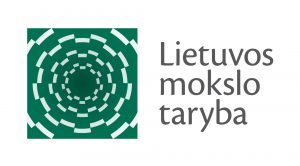“Mapping and Assessment of Lithuanian national and regional Parks Ecosystem Services (MALPES)”, Nr.S-PD-22-64
 Project No. S-PD-22-64
Project No. S-PD-22-64
Project title: „Mapping and Assessment of Lithuanian national and regional Parks Ecosystem Services (MALPES)”
Project duration: from 2022-11-03 to 2024-10-31
Postdoctoral supervisor: prof. dr. Paulo Pereira
Postdoctoral trainee: Marius Kalinauskas
The project “Mapping and Assessment of Lithuanian national and regional Parks Ecosystem Services (MALPES)”, aims to improve the understanding of natural parks on wellbeing by mapping and assessing the most relevant Ecosystem Services (ES) supplied by national and regional parks (hereafter national parks). So far, little is known, although several projects focused on ES were conducted in Lithuania. The study will focus on the assessment of six ES supply and demand). Two regulating, two provisioning and two cultural ES will be studied at the national level and an in-depth ES analysis of three case studies (One ES component – regulating, provisioning and cultural demand and supply per case study.) MAPLES project results will be the basis for understanding the capacity of these areas to supply regulating, provisioning and cultural ES at different scales. The project is divided into two work packages (WP’S). WP1 covers stakeholder identification, stakeholder-driven selection of relevant ES for the national and case study areas, refinement of ES assessment indicators and methods, data collection and geodatabase creation. WP2 focuses on mapping and assessing the selected ES supply and demand at the national scale; detailed ES case study supply and demand analysis using high-resolution unmanned aerial vehicle imagery, evaluating the role of ES supply and demand to human wellbeing and providing recommendations and guidelines for decision-makers and management. The project results will strengthen the knowledge of how ES provided by national parks in Lithuania contributes to the population’s wellbeing. It will also have high relevance for authorities and planners in understanding the role of ES of national parks in supporting national, European and international environmental targets (e.g. Sustainable Development Goals; Aichi Biodiversity Targets; UN decade on ecosystem restoration; Convention on Biological Diversity).